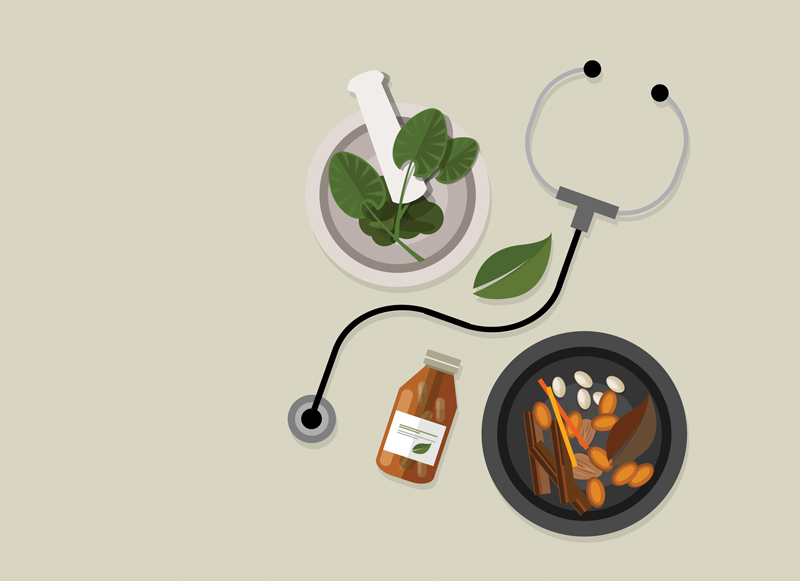An Integrative Approach to Healing from Lyme Disease
 Whenever Lyme and tick-borne disease treatment is brought up in conversation, the variety of methods a patient seeks out is never ending. Why? Because we, as a people, are so diverse in how we live that it only makes sense that that diversity would spill over into how we seek out treatment when we are sick. Many initially turn to their primary caregiver who assesses the situation and writes a prescription for an antibiotic. Some medical caregivers perform a more natural approach with homeopathy and naturopathic avenues.
Whenever Lyme and tick-borne disease treatment is brought up in conversation, the variety of methods a patient seeks out is never ending. Why? Because we, as a people, are so diverse in how we live that it only makes sense that that diversity would spill over into how we seek out treatment when we are sick. Many initially turn to their primary caregiver who assesses the situation and writes a prescription for an antibiotic. Some medical caregivers perform a more natural approach with homeopathy and naturopathic avenues.
But the one thing that I see over and over again, is that those who seek out the antibiotic route do not follow through with any restorative treatment. Let me explain. I use the burning house as a simple analogy. The house is on fire, the firefighters come and put out the fire. Now what? Most can not just move back in and live as if nothing ever happened. Many house fires require rebuilding and restoration and repairing that which was destroyed in the fire so that the habitat is safe and healthy to live in. Makes sense, right?
So, lets apply that logic to our bodies and our healthcare needs and I’ll use tick-borne disease as my example. I’ve written about how fallible the diagnostic testing can be and how experienced one’s medical provider is with diagnosing and treating tick-borne disease factors into your outcome of recovery. Now, let’s just say you get a delayed diagnosis and treatment ensues. We’re going to assume that your medical provider gives you 3 weeks of antibiotics. Nothing else. You were never advised to take a probiotic, whose job it is to bring good bacteria in to help restore and balance out the deficiency in your body. So, now you’re done with your meds and you still don’t feel good. You don’t have the energy that you once had and you wonder if you’re still sick. This is very common and a question that I address almost daily.
Could you still be infected? Yes, you could be and/or there could be a co-infection that was never diagnosed and treated that is roaming around in your body. But for the sake of argument, we’re going to surmise that the antibiotic you took has taken care of the infection. So, why do you still feel so bad?
Well, let’s revisit that burned house. It doesn’t look good, it doesn’t smell good and things just don’t work the way they used to. It’s not a complete loss but we need to rebuild and restore that which was destroyed during treatment. So, we need to look at your adrenals and your vitamin levels, your iron, magnesium and everything else that was touched during treatment. No matter how long you’ve been sick and in treatment, at some point, that treatment protocol has to change from a search and destroy mission, where you are constantly taking antibiotics, to a recovery mission where you are rebuilding. The role of an antibiotic is to seek out toxins and bad bacteria and destroy them and yes, there will be collateral damage, if one is not careful. There must be a balance of antibiotic and probiotic to destroy and protect, break down and rebuild in a healthy balance. Most integrative medical providers understand this concept all too well as it is a common practice for them. Some even go beyond the standard antibiotic to choosing a product that is more natural and healthier, but just as powerful and effective. And they monitor closely as the war wages inside their patient knowing precisely when to change and bring in the restorative products. A patient who seeks out an integrative medical provider is covered every step of their journey as they navigate back to good health.
Healing is not always about destroying but understanding what has been destroyed and having the appropriate resources to step in and rebuild. Those who are chronically ill and who continue to take antibiotics long after the infection is gone stand to become even more sick as various organs become impacted by a treatment whose only mission is to destroy. I personally advocate for self-choice. Have this conversation with your medical provider. Understand the path that you are on for healing and if you’re not ok with that, speak up. You have a say in how you are treated and you have choices not only in treatment, but with which medical providers. You need to be heard and feel that you are understood and that your provider is doing what you want. This is an integrative approach to healing, one where you can use your voice and make decisions about your treatment options.
Paula Jackson Jones is the President of the MLDSE, the Co-Chair of the Access to Care Services and Patient Support subcommittee of the Federal HHS Tick-borne Disease Working Group, the Maine-partner of the national Lyme Disease Association, member of Maine’s CDC Vector-borne Workgroup and active in Maine’s Lyme legislation. You can reach her at: [email protected]
As we enter the winter/spring season, our organization remains busy with prevention talks and connecting those who have been exposed to tick bites and tick-borne diseases to local resources. As always, if you or someone that you know has been exposed or thinks that they may have, you can visit our website for more information and connections to providers and resources that can help. www.mldse.org




